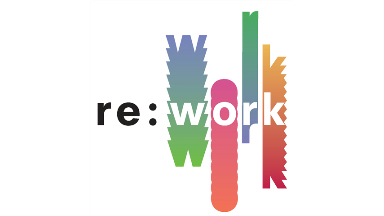(Source: Rework)
We learned of a call for papers
for a workshop on “Citizenship, Migration and Social Rights – Historical
Experiences from the Eighteenth to the Twentieth Century”. Here the call:
Call for Papers Workshop:
Citizenship, Migration and Social Rights – Historical Experiences from the
Eighteenth to the Twentieth Century Date: 4 – 5 March 2021 Location: Humboldt
University Berlin, International Research Centre Work and Human Lifecycle in
Global History (re:work), Georgenstr. 23, 10117 Berlin Organizers: Beate
Althammer, DFG-Project “The Borders of the Welfare State: Migration, Social
Rights and Expulsion (1850-1933)”, in cooperation with re:work Deadline for proposals:
15 September 2020 URL:
https://rework.hu-berlin.de/borders-of-the-welfare-state-en.html
In current academic and political
debates, the tensions between European conceptions of the welfare state and
transnational migration are a heatedly discussed issue. How can promises of
social security be kept in times of globalization? Is welfare only feasible in
‘closed’ nation states with tight border controls, or is migration, to the
contrary, necessary for sustaining welfare systems? To what extent are social
rights a privilege of national citizens, to what extent, and under what
conditions, are they also due to foreign immigrants? Such questions have become
an explosive and intensely scrutinized subject. Much less, however, is known
about their historical dimensions. There exists by now a rich historiography on
the origins of modern welfare policies; migration history is flourishing too;
and in recent years, the history of citizenship has attracted increasing
attention. Yet, these have largely remained three separate fields of research.
Few works have studied in detail so far how European welfare states dealt with
the challenges of migration in their formative phase, and what experiences, in
turn, migrants have made with the social services of their host societies. The
project “The Borders of the Welfare State: Migration, Social Rights and
Expulsion (1850-1933)” is attempting to fill this gap. Taking as its starting
point the frequently postulated, but probably too simplistic hypothesis that
the status of aliens deteriorated inversely to the expansion of citizens’
rights with the emergence of modern national welfare states, it explores the
interrelations of labour migration and social policies in the decades around
1900. The project compares national discourses and legal frameworks of various
European countries, analyses concrete administrative practices at the local
level, and looks at the beginnings of international agreements on the
reciprocal treatment of citizens who moved across borders. The aim is to write
a transnational European history of the negotiations over the social
entitlements of migrants in the early days of modern welfare-state building.
Despite its transnational approach, the scope of the project is necessarily
limited, in geographical and temporal terms as well as in terms of the aspects
of ‘welfare’ and ‘migration’ it is able to take into account. Therefore, the
planned workshop wants to open up its horizon by bringing together researchers
who are working on related topics. Invited are historians, but also scholars
from neighbouring disciplines (sociology, political sciences, anthropology,
etc.) with a research interest in the interrelationships of migration and
social policies from the eighteenth century to the present. Although the focus
of the workshop will be on the evolution of European migration and welfare
regimes, papers that offer extraEuropean perspectives are very welcome too. And
although the focus will be on the impact of migration on ‘modern’ social
policies and vice versa, also early modern historians are addressed who can
help us to understand continuities and changes during the transition to
modernity. Possible approaches of papers that explore the interrelationships of
migration and social policies include: - Theoretical reflections on long-term
developments - Semantics of welfare, belonging and social rights - Comparisons
between national migration and welfare regimes - Case studies on local
constellations and experiences - Case studies on specific migrant groups or
specific sectors of welfare provision - Case studies on periods of disruption,
e.g. in the wake of wars or economic crises - Transnational studies on the
cross-border coordination of migration and social policies The workshop is
funded by the DFG (German Research Foundation) and will take place in Berlin
from 4 to 5 March 2021 at the premises of re:work. The organizers will provide
accommodation as well as (limited) reimbursement of travel expenses. Should
travel restrictions or other impediments to on-site events due to the Covid-19
pandemic still be in force, we will consider switching to an, in parts, digital
format. Presentations should not exceed 20 minutes. We plan to publish a
selection of revised papers. Please send proposals comprising a title, an
abstract of about 300 words and a short CV, to beate.althammer@hu-berlin.de by
15 September 2020.
More info on the website
of the project.


No comments:
Post a Comment